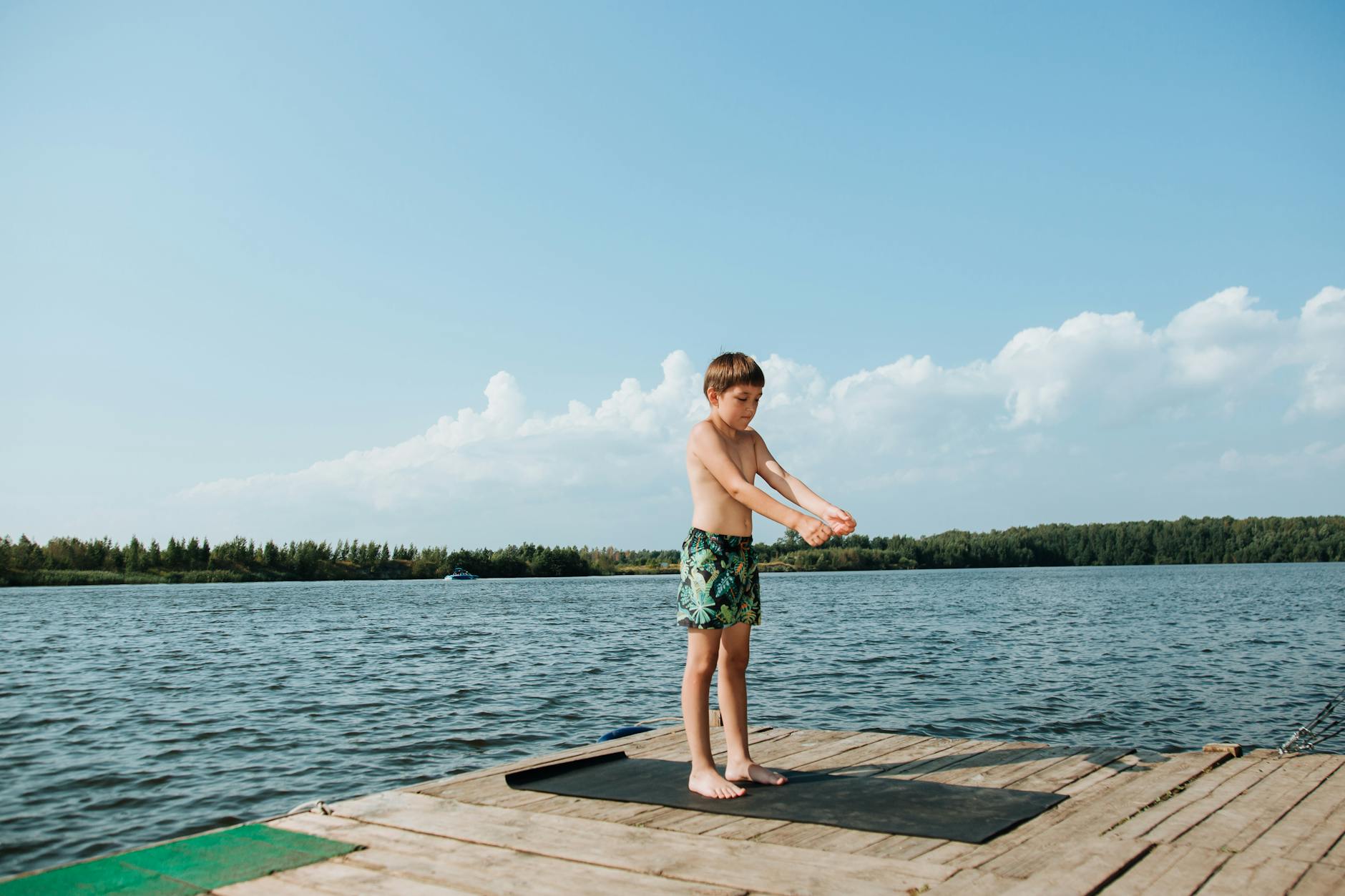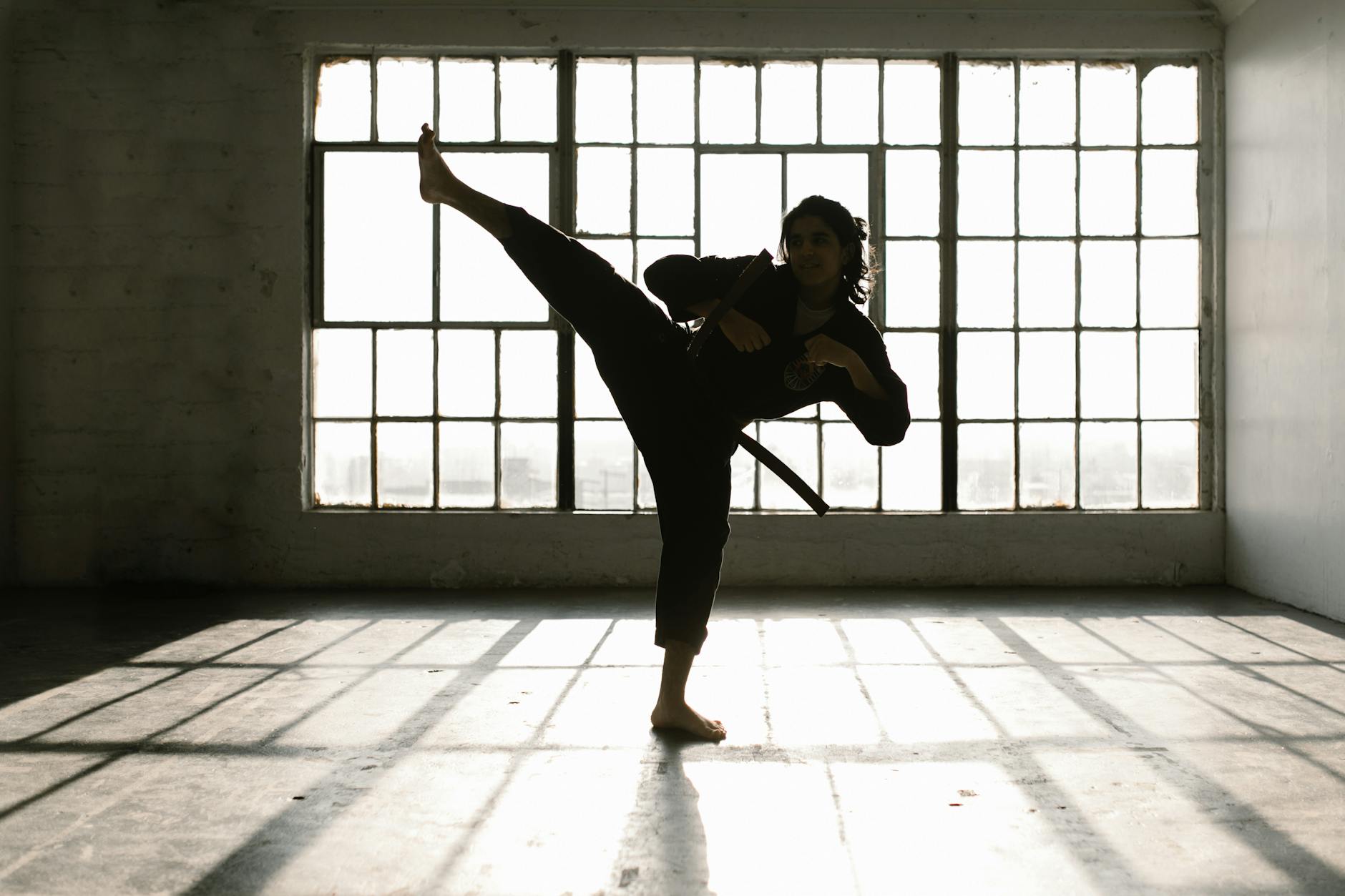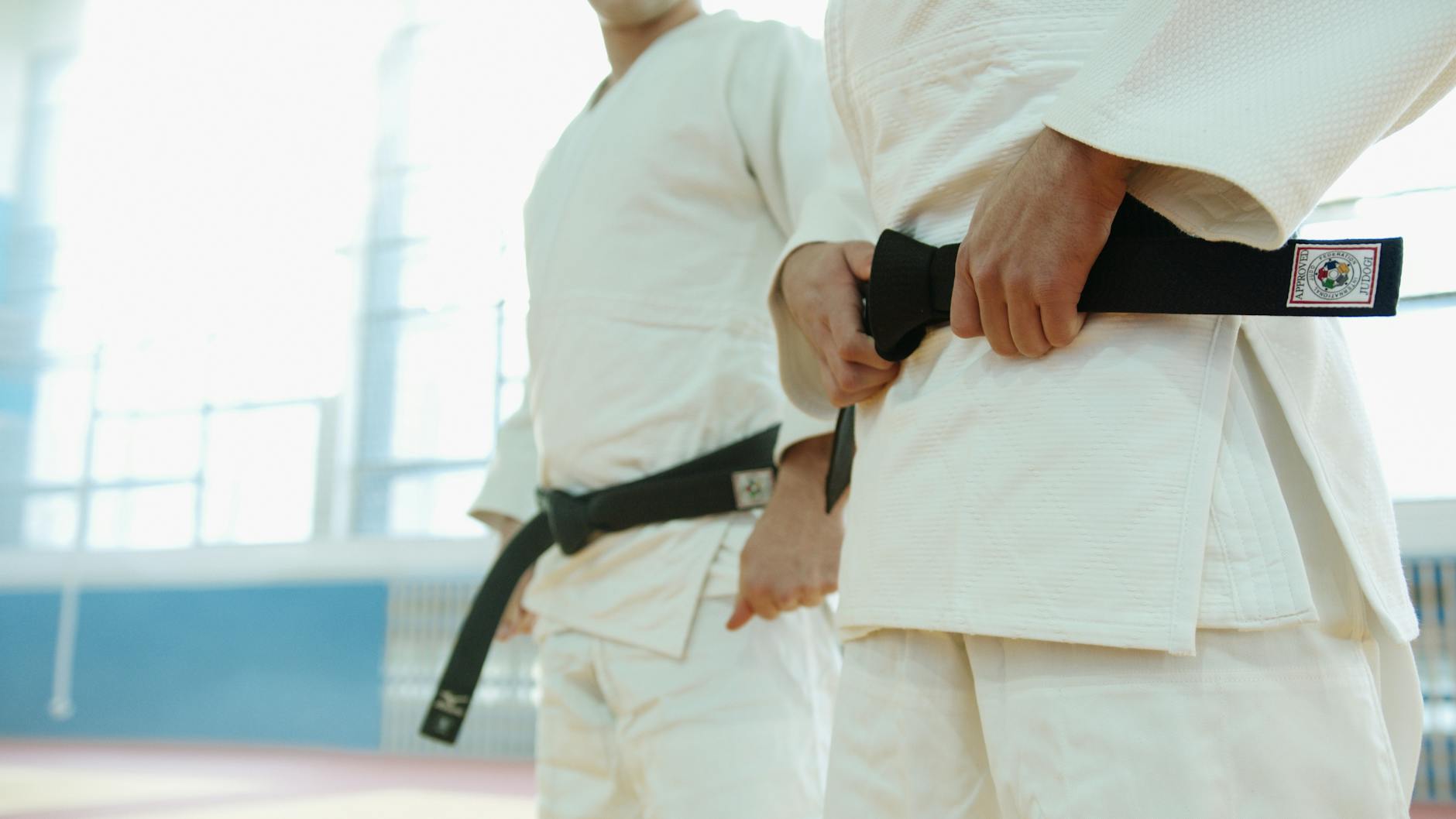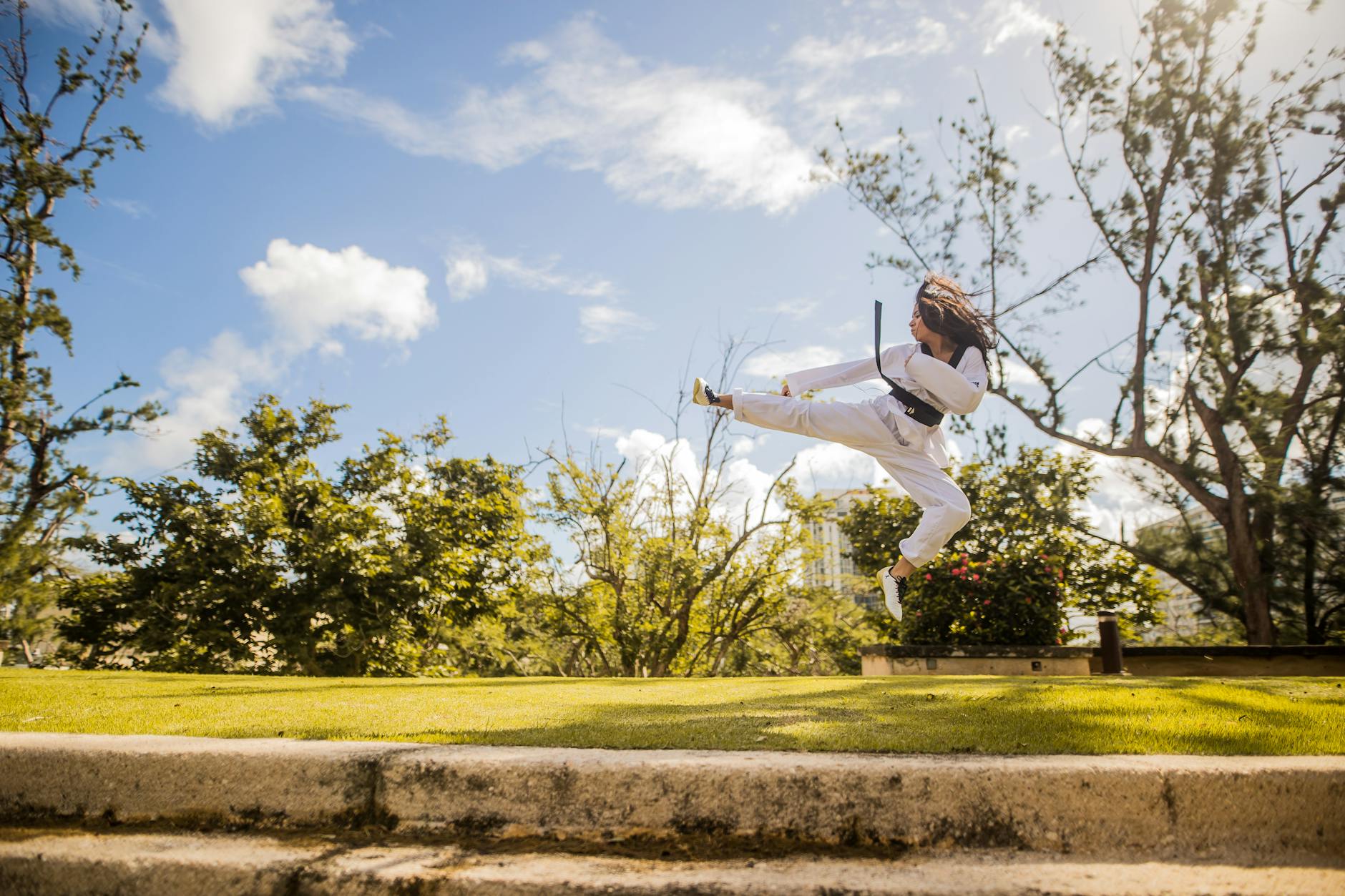
Top 10 Benefits of Martial Arts for Kids and Teens
Top 10 Benefits of Martial Arts for Kids and Teens

🥋 Are you looking for an activity that can transform your child's life in more ways than one? Martial arts might just be the answer you've been searching for. In a world where screens dominate and physical activity often takes a backseat, martial arts offers a powerful antidote that goes far beyond just keeping kids active.
Imagine your child not only getting fit but also developing unshakeable confidence, laser-like focus, and the ability to defend themselves. Picture them learning valuable life skills that will serve them well into adulthood. From boosting self-esteem to fostering cultural awareness, the benefits of martial arts for kids and teens are both diverse and profound. But what exactly are these benefits, and how can they impact your child's life? Let's dive into the top 10 ways martial arts can positively shape your child's future, transforming them into well-rounded, confident individuals ready to take on the world. 🌟💪

Physical Fitness and Health
Martial arts offer a comprehensive approach to physical fitness for kids and teens, providing numerous health benefits that extend beyond the dojo. Let's explore the key aspects of physical fitness enhanced by martial arts training:
A. Improved cardiovascular endurance
Martial arts training involves high-intensity workouts that challenge the heart and lungs. Regular practice helps:
Strengthen the cardiovascular system
Improve lung capacity
Increase overall stamina
B. Enhanced strength and flexibility
The diverse movements in martial arts contribute to:
Building lean muscle mass
Improving joint flexibility
Developing functional strength
C. Better coordination and balance
Through repetitive techniques and forms, martial arts enhance:
Hand-eye coordination
Spatial awareness
Dynamic balance
D. Healthy weight management
Martial arts provide an engaging way for kids and teens to maintain a healthy weight:
Benefit Description Calorie burning High-energy training sessions burn excess calories Metabolism boost Regular practice increases metabolic rate Healthy habits Encourages mindful eating and overall wellness
By incorporating martial arts into their routine, children and adolescents can develop a strong foundation for lifelong physical fitness. These benefits not only improve their current health but also set the stage for a active and healthy adulthood.

Self-Defense Skills
Now that we've explored the physical fitness benefits of martial arts, let's delve into one of its most practical aspects: self-defense skills. Martial arts equip children and teens with valuable techniques to protect themselves in potentially dangerous situations.
Learning Practical Techniques
Martial arts training provides kids and teens with a repertoire of effective self-defense moves. These techniques are designed to be:
Simple to execute
Adaptable to various situations
Effective against larger opponents
Technique Type Purpose Example Strikes Disable attacker Palm heel strike Blocks Deflect attacks Forearm block Escapes Break free from grabs Wrist release
Developing Situational Awareness
Beyond physical techniques, martial arts cultivate a keen sense of situational awareness. This skill helps young practitioners:
Recognize potential threats
Assess their surroundings
Make quick, informed decisions
Building Confidence in Personal Safety
As kids and teens master self-defense skills, they naturally develop a stronger sense of personal security. This confidence:
Reduces vulnerability to bullying
Encourages assertiveness
Promotes a calm demeanor in challenging situations
By learning these crucial self-defense skills, young martial artists are better prepared to navigate the world safely and confidently. Next, we'll explore how martial arts training enhances mental focus and discipline.

Mental Focus and Discipline
Martial arts training offers remarkable benefits for kids and teens, particularly in developing mental focus and discipline. These skills are crucial for success in various aspects of life, both in and out of the dojo.
Increased concentration abilities
Regular martial arts practice enhances a child's ability to concentrate. Through repetitive movements and intricate techniques, students learn to maintain focus for extended periods. This heightened concentration often translates to improved attention spans in school and daily life.
Enhanced goal-setting skills
Martial arts inherently incorporate goal-setting through its belt ranking system. Students learn to:
Set short-term and long-term goals
Break down larger objectives into manageable steps
Persevere through challenges to achieve their aims
This structured approach to goal-setting becomes a valuable life skill, applicable in academic pursuits and personal growth.
Improved time management
The discipline required in martial arts extends to time management. Students learn to:
Prioritize tasks
Balance training with other responsibilities
Develop consistent practice routines
These skills help kids and teens manage their schoolwork, extracurricular activities, and personal time more effectively.
Better academic performance
The combination of improved focus, discipline, and time management often leads to enhanced academic performance. Consider the following comparison:
Skill Developed Impact on Academics Concentration Improved study habits and test-taking abilities Goal-setting Better project planning and completion Time management More efficient homework completion Discipline Increased dedication to challenging subjects
As students apply these skills to their studies, they often see significant improvements in grades and overall academic achievement.

Stress Relief and Emotional Regulation
Now that we've explored the mental focus and discipline benefits of martial arts, let's delve into how these practices contribute to stress relief and emotional regulation for kids and teens.
Healthy Outlet for Energy and Emotions
Martial arts provide a structured and safe environment for children to channel their energy and emotions productively. Through controlled movements and exercises, young practitioners learn to:
Release pent-up energy
Express emotions in a healthy manner
Develop body awareness and control
Reduced Anxiety and Depression
Regular participation in martial arts can significantly impact mental health:
Benefit How Martial Arts Helps Anxiety Reduction Mindfulness techniques, breathing exercises Depression Management Endorphin release, goal achievement Stress Coping Physical activity, social support
Improved Sleep Quality
The combination of physical exertion and mental relaxation in martial arts contributes to better sleep patterns. Children and teens who practice martial arts often experience:
Faster sleep onset
Deeper, more restful sleep
Improved daytime alertness and focus
By incorporating martial arts into their routine, kids and teens can develop valuable tools for managing stress and regulating their emotions, setting a foundation for better mental health as they grow. Next, we'll explore how martial arts foster social skills development in young practitioners.

Social Skills Development
Martial arts training provides an excellent platform for kids and teens to develop crucial social skills. This aspect of martial arts often goes overlooked, but it's one of the most valuable benefits for young practitioners.
A. Teamwork and Cooperation
While martial arts may seem like an individual pursuit, many activities involve partner work and group exercises. These interactions foster:
Collaborative problem-solving
Mutual support and encouragement
Shared goal achievement
Activity Teamwork Benefit Sparring Learning to work with a partner Group forms Synchronizing movements with others Partner drills Developing trust and communication
B. Respect for Others and Authority
Martial arts instill a deep sense of respect, which is fundamental to positive social interactions. Students learn to:
Bow to instructors and training partners
Listen attentively to instructions
Show appreciation for opponents' skills
C. Making New Friends with Shared Interests
The dojo becomes a social hub where kids and teens can:
Connect with peers who share their passion
Develop friendships outside of school
Practice social skills in a supportive environment
By participating in martial arts, young people not only enhance their physical abilities but also cultivate essential social skills that will serve them well throughout their lives. These skills contribute to better relationships, improved communication, and a stronger sense of community.

Boost in Self-Confidence
Martial arts training provides a significant boost in self-confidence for kids and teens, helping them navigate the challenges of growing up with poise and assurance.
Overcoming challenges and fears
As young practitioners progress through their martial arts journey, they face numerous physical and mental challenges. Each time they overcome these obstacles, their confidence grows. For example:
Breaking boards
Learning complex techniques
Sparring with partners
Advancing through belt ranks
Positive body image
Martial arts promotes a healthy relationship with one's body, focusing on strength, flexibility, and skill rather than appearance. This shift in perspective helps children and teens develop a positive body image, appreciating their bodies for what they can do rather than how they look.
Increased self-esteem
Regular training and visible progress in martial arts contribute to increased self-esteem. The following table illustrates how different aspects of martial arts training boost self-esteem:
Aspect Impact on Self-Esteem Belt promotions Tangible recognition of progress Mastering techniques Sense of accomplishment Competing in tournaments Opportunity to showcase skills Peer recognition Positive reinforcement from others
Public speaking and performance skills
Many martial arts schools incorporate public speaking and performance elements into their training, such as:
Reciting creeds or oaths
Demonstrating techniques in front of the class
Participating in exhibitions or demonstrations
These experiences help children and teens become more comfortable with public speaking and performing under pressure, further boosting their overall confidence.
As students gain confidence through martial arts, they become better equipped to handle various life situations, from academic challenges to social interactions. This newfound self-assurance often translates into improved performance in other areas of their lives, setting them up for success both on and off the mat.

Character Building
Character building is a fundamental aspect of martial arts training for kids and teens. Through consistent practice and dedication, young martial artists develop essential qualities that shape their personalities and values.
Learning perseverance and resilience
Martial arts training challenges students to push their limits and overcome obstacles. This process cultivates:
Mental toughness
Ability to bounce back from setbacks
Determination to achieve goals
Developing integrity and honesty
The martial arts ethos emphasizes moral principles, encouraging:
Truthfulness in actions and words
Accountability for one's behavior
Respect for rules and ethical conduct
Cultivating humility and sportsmanship
Martial arts teach students to:
Acknowledge their limitations
Respect opponents and training partners
Handle both victory and defeat gracefully
Character Trait How Martial Arts Develops It Perseverance Regular practice, overcoming challenges Integrity Adhering to ethical codes, being truthful Humility Learning from mistakes, respecting others Sportsmanship Competing fairly, accepting outcomes
These character-building aspects of martial arts not only benefit young practitioners in their training but also translate into valuable life skills. As students progress in their martial arts journey, they develop a strong moral compass and a sense of personal responsibility that serves them well in all areas of life.

Leadership Skills
As children progress in their martial arts journey, they naturally develop leadership skills that extend far beyond the dojo. This aspect of martial arts training offers invaluable benefits for kids and teens, preparing them for future roles in various aspects of life.
Taking responsibility for younger students
In martial arts classes, older or more experienced students often assist in teaching and mentoring younger or newer students. This practice:
Fosters a sense of responsibility
Enhances patience and understanding
Builds empathy and nurturing skills
Learning to lead by example
Martial arts emphasize the importance of leading by example, which is crucial for developing strong leadership skills. Students learn to:
Demonstrate proper techniques and etiquette
Show respect for instructors and peers
Maintain a positive attitude, even in challenging situations
Developing communication skills
Effective communication is at the heart of good leadership, and martial arts provide ample opportunities to hone these skills:
Verbal communication: Explaining techniques to others
Non-verbal communication: Demonstrating moves and using body language
Active listening: Paying attention to instructions and feedback
Here's a comparison of leadership skills developed through martial arts versus traditional team sports:
Leadership Skill Martial Arts Traditional Team Sports Individual Responsibility High Moderate Mentoring Opportunities Frequent Occasional Communication Practice One-on-one and group Primarily team-based Leading by Example Constant emphasis Varies by role
These leadership skills, cultivated through martial arts training, equip kids and teens with valuable tools for success in school, future careers, and personal relationships. As we explore the next benefit, we'll see how martial arts also contribute to a broader understanding of the world around us.

Cultural Awareness
Martial arts training offers children and teens a unique opportunity to broaden their cultural horizons. This aspect of martial arts education goes far beyond physical techniques, immersing students in rich traditions and philosophies from around the world.
Exposure to Different Martial Arts Traditions
Martial arts classes introduce young practitioners to a variety of disciplines, each with its own distinct history and cultural background. For example:
Martial Art Origin Key Characteristics Karate Japan Striking techniques, kata forms Kung Fu China Fluid movements, animal-inspired styles Capoeira Brazil Acrobatic kicks, rhythmic movements Taekwondo Korea High kicks, fast-paced sparring
This exposure helps children appreciate the diversity of martial arts and the cultures they represent.
Understanding of Eastern Philosophies
Many martial arts incorporate Eastern philosophies that can profoundly impact a child's worldview:
Mindfulness and meditation practices
Concepts of balance and harmony
Respect for nature and the environment
The importance of inner strength and self-control
These philosophical elements provide valuable life lessons that extend far beyond the dojo.
Appreciation for Global Diversity
As students learn about the origins and evolution of various martial arts, they develop a deeper appreciation for global diversity. This cultural awareness:
Fosters respect for different traditions and customs
Encourages open-mindedness and curiosity about other cultures
Promotes understanding and tolerance in an increasingly interconnected world
By engaging with martial arts, children and teens gain not only physical skills but also a broader cultural perspective that will serve them well throughout their lives.

Lifelong Fitness Habit
Martial arts for kids and teens is not just a temporary activity; it's a gateway to a lifelong commitment to fitness and well-being. This practice lays the foundation for an active lifestyle that can benefit individuals well into adulthood.
Establishing a foundation for active lifestyle
Martial arts training introduces children to the joy of physical activity early on. Unlike team sports that may lose appeal after school years, martial arts offers a versatile and adaptable fitness routine that can be practiced at any age.
Learning the importance of consistent practice
One of the key lessons in martial arts is the value of consistent practice. This table illustrates the benefits of regular training:
Frequency Physical Benefits Mental Benefits Daily Improved stamina, flexibility Enhanced focus, reduced stress Weekly Maintained strength, coordination Consistent discipline, goal-setting Monthly Steady progress in techniques Long-term commitment, patience
Developing a passion for physical activity
As children progress in their martial arts journey, they often develop a genuine passion for physical activity. This enthusiasm can extend to other forms of exercise, creating a well-rounded approach to fitness.
Creating a sustainable approach to health and wellness
Martial arts teaches more than just physical techniques; it instills principles of:
Balance between exertion and rest
Proper nutrition to fuel the body
Mindfulness and mental well-being
Goal-setting and personal growth
These elements combine to create a sustainable, lifelong approach to health and wellness that extends far beyond the dojo.

Martial arts offer a wealth of benefits for children and teenagers, extending far beyond physical fitness. From developing crucial self-defense skills to enhancing mental focus and discipline, these practices provide a comprehensive approach to personal growth. Participants learn to manage stress, regulate emotions, and build essential social skills, all while boosting their self-confidence and character.
As young martial artists progress, they cultivate leadership abilities and gain cultural awareness, setting the foundation for a lifelong commitment to fitness and personal development. By embracing martial arts, children and teens can unlock their full potential, equipping themselves with valuable tools for success in all areas of life. Encourage your child to explore the world of martial arts and witness the transformative impact it can have on their physical, mental, and emotional well-being.